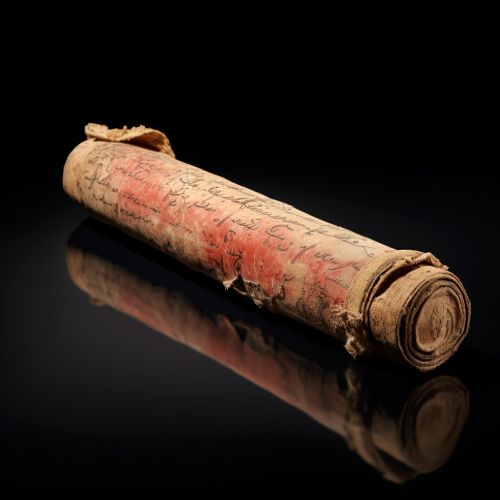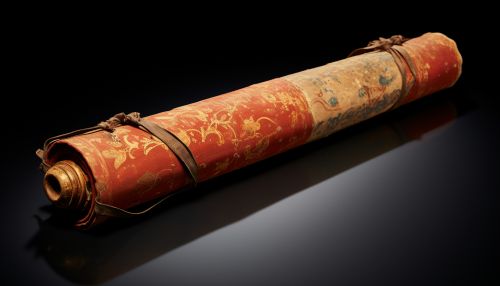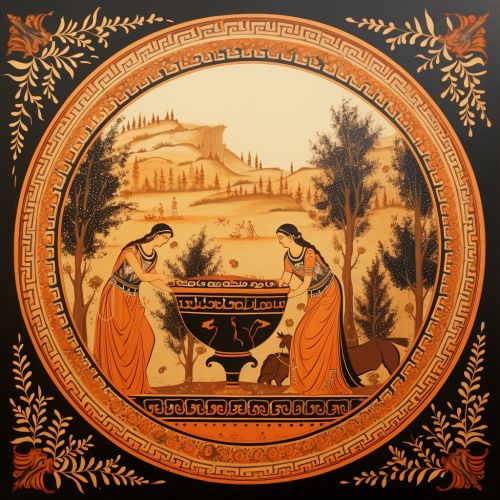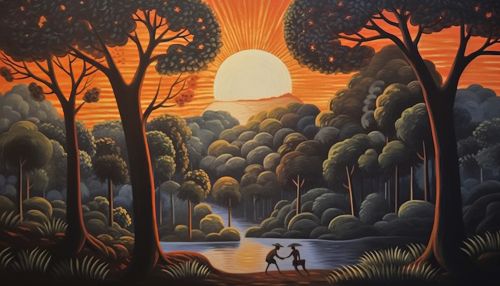Greek mythology
Origins and Sources
Greek mythology, the body of myths originally told by the ancient Greeks, is a vast and fascinating realm of legends, heroes, gods, and creatures. These stories, passed down through generations, form a rich tapestry of narratives that explore the human condition, natural phenomena, and the cosmos.
The primary sources of Greek mythology are the two epic poems of Homer: the Iliad and the Odyssey. Other important sources include the Theogony and the Works and Days of Hesiod, the Homeric Hymns, and the tragedies of the great Athenian playwrights.


Gods and Goddesses
The pantheon of Greek gods and goddesses features a multitude of deities, each with their own roles, attributes, and mythological tales. At the apex of this divine hierarchy are the twelve Olympian gods, who resided on Mount Olympus. These include Zeus, the king of the gods; Hera, the goddess of marriage and childbirth; Poseidon, the god of the sea; and Athena, the goddess of wisdom and warfare, among others.
Each of these deities had their own unique characteristics and domains. For instance, Aphrodite, the goddess of love and beauty, was often depicted as a beautiful woman, and her myths often revolve around themes of love and desire. On the other hand, Ares, the god of war, was often associated with violence and bloodshed.
Heroes and Heroic Myths
Greek mythology is replete with tales of extraordinary heroes, whose feats of strength, cunning, and bravery are often intertwined with the actions of the gods. These heroes, such as Heracles, Perseus, and Theseus, embarked on epic quests, battled monstrous creatures, and often faced the wrath or favor of the gods.
For instance, the twelve labors of Heracles, imposed on him as a penance for killing his wife and children in a fit of madness induced by Hera, are among the most famous of these heroic myths. These labors, which included slaying the Nemean lion and the Hydra, capturing the Golden Hind of Artemis, and obtaining the girdle of Hippolyta, Queen of the Amazons, were accomplished with a combination of strength, wit, and often divine assistance.
Mythical Creatures
Greek mythology also abounds with a host of mythical creatures, each with their own unique attributes and roles within mythological narratives. These creatures, such as the Minotaur, the Cyclopes, and the Gorgons, often serve as antagonists in the tales of Greek heroes.
For example, the Minotaur, a creature with the body of a man and the head of a bull, was the offspring of Pasiphaë, the wife of King Minos of Crete, and a majestic bull. Confined within the labyrinth designed by Daedalus, the Minotaur was eventually slain by the hero Theseus.
Influence on Western Culture
The influence of Greek mythology on Western culture is profound and pervasive. From the Renaissance to contemporary times, these myths have inspired countless works of art, literature, and philosophy. They have also shaped our understanding of the human condition, and continue to resonate with audiences today.


